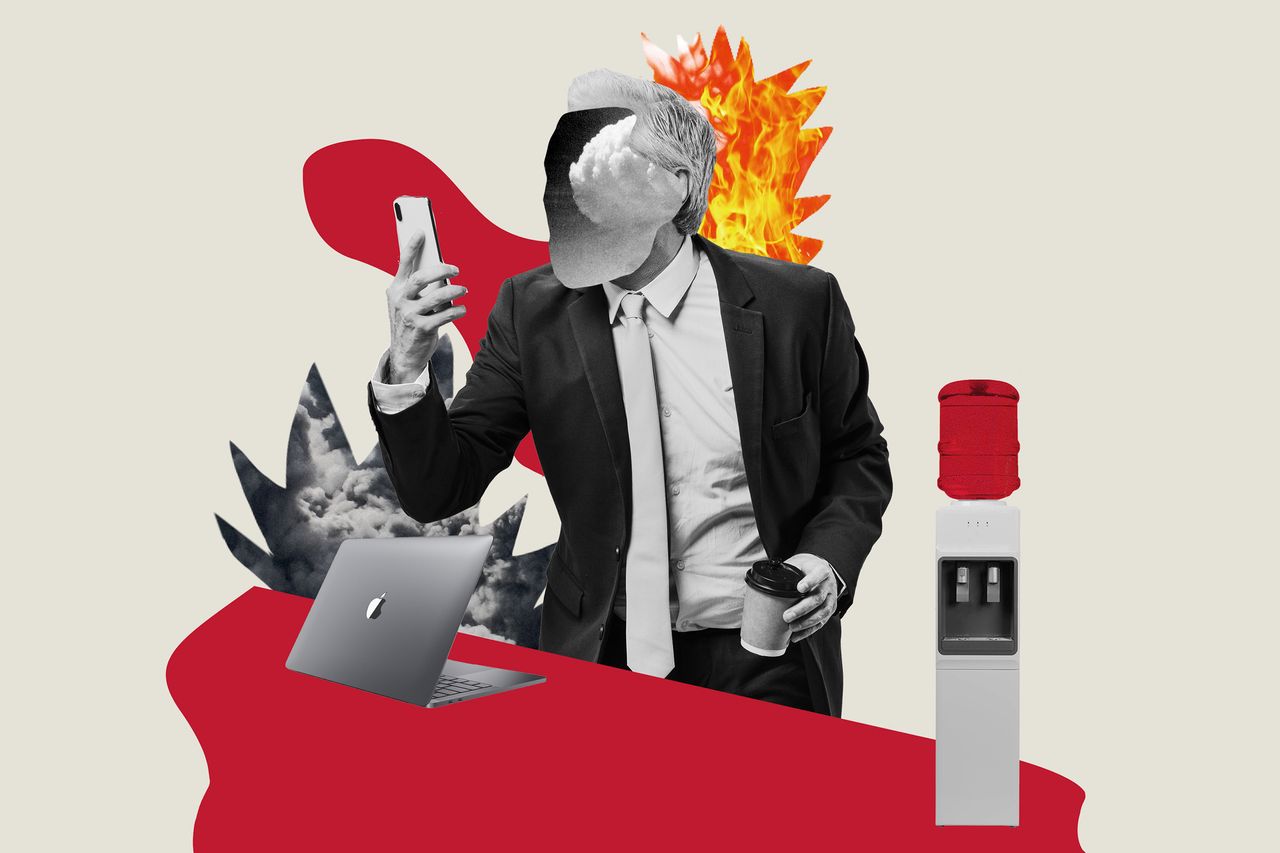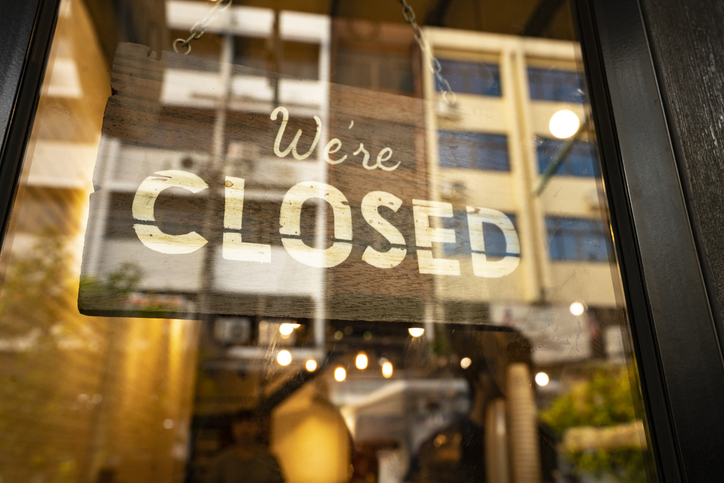What the #@$%! Happened to Our Manners at Work?
Because of pandemic rust, a generational shift or something else, the working world is getting ruder, many say.
Workers, where are your bleeping manners?
You’re cursing more and handshaking less, quitting on shorter notice and waiting longer to answer emails and texts.
At least, that’s how it feels to the self-appointed etiquette police among your co-workers and business associates. Politeness is tough to measure, and, sure, certain norms are overdue for updates. Still, I keep hearing from business people who swear (as in attest, not cuss) that the working world is getting ruder.
Hiring managers lament that job candidates skip cover letters whenever possible, seldom follow up on interviews with thank-you notes and can’t be counted on to show up once they’ve accepted offers.
Job seekers, for their part, complain that computers screen those cover letters, anyway, and that too few recruiters are considerate enough to send rejection letters, leaving hopefuls to wonder for weeks about where they stand with potential employers.
Many workers, particularly younger ones, claim they aren’t interested in bonding with colleagues and act accordingly. Happy hour? Hard pass. That’s not so much about being cold or uncivil, these people say, as it is about maintaining a private life away from work.
Others’ interpersonal skills are rusty or underdeveloped, owing to limited opportunities to practice during much of the past couple of years.
One glimmer of hope, or a sign of self-awareness: LinkedIn reports August enrollment in its two most popular business etiquette courses was up 127% year over year.
Those mourning the supposed decline of business etiquette blame the pandemic, a tight labor market, Gen Z and the internet.
“In the last three or four years, it has become much, much worse,” says Steve Landrum, a sales executive who lives near Atlanta.
His No. 1 gripe is “ghosting” from potential clients, which he says is more common now than at any time in his 30-year career. Like a dating-app match who suddenly stops answering messages after flirting, some sales leads show initial interest only to cut off communication without explanation.
When that happens, Mr. Landrum sends a short “breakup” email—“I’m going to assume that you’ve gone in a different direction,” he writes—if only for his own sense of closure. He tells me those who aren’t courteous harm their own reputations, though he concedes that bad form doesn’t dog people as it once did.
The bigger shift in recent years might be that rudeness has become less costly.
Left your job abruptly? In this economy, there’s bound to be another one around the corner—for now, anyway—and companies aren’t checking references as often as they used to.
Underdressed for the big meeting? Let she who is without stretchy Zoom pants cast the first stone.
Ignored that question a co-worker asked you on Slack? In a hybrid workplace, you might never cross paths with the co-worker and have to suffer the awkward consequences. Or if you do, you can claim having turned off notifications accidentally.
Just don’t try that excuse on Phoenix Normand, chief of staff at a tech company in California.
“Waiting all day to return a Slack inquiry is pretty much the most disrespectful thing you can do,” he says.
A close second: mucking up written communications with wayward punctuation, misspellings, abbreviations and emojis. If Mr. Normand sees a “your” that should be “you’re,” he’s gonna be, like, WTF? Amirite?
“The English language is being butchered to the point where it’s almost embarrassing,” he says.
He adds that workers often don’t realize their informality can land poorly, at least if someone like the 53-year-old Mr. Normand is on the receiving end. A recipient might conclude that the writer doesn’t know basic grammar and syntax or take offence. A sloppy email can inadvertently suggest that the person in the “to” field isn’t worth the time it takes to proofread.
Toni Purvis, founder of the School of Disruptive Etiquette in Washington, D.C., recommends erring on the side of formality in writing. It can be safer, she says, to buck traditional notions of “professional” appearance because many companies have come to realize that rules governing attire, hair, tattoos and other aspects of personal style can marginaliae certain workers.
Still, it remains important to consider how others perceive the way you present yourself, she adds.
For instance, the red suit that Ms. Purvis wore on her first day as an intern at an investment bank in the aughts sent the wrong message. In an industry with its own dull palette—banker grey—it looked as though she was trying to be the centre of attention, she says.
The outfit was a hand-me-down, and Ms. Purvis was oblivious to the unofficial dress code because she was the first person in her family or circle of friends to enter the corporate world. Her school aims to help others who don’t grow up learning etiquette by osmosis avoid missteps.
Daniel Post Senning, author and spokesman at the Emily Post Institute, notes that many traditional standards can be traced to wealthy, white society in the Northeast. He agrees with Ms. Purvis that contemporary etiquette is evolving to be more inclusive.
“Being true to who you are and where you came from is an important part of being honest,” he says.
That doesn’t mean authenticity always goes over well.
Cole Wiser, the creative director at a marketing agency in Dallas, says addressing a client as “y’all” once prompted a private scolding by a manager who thought the term was too informal. Ever since, Mr. Wiser says, he’s been self-conscious about a contraction that’s just part of how he talks.
When he slipped a “y’all” into a video call with a client recently, he asked his LinkedIn network to weigh in. The advice ranged from use it to don’t use it, to use it only with fellow Texans. “Read the room” was a popular tip.
The mixed feedback wasn’t especially helpful, but he posted thank-yous, anyway. It seemed like the proper thing to do.
Reprinted by permission of The Wall Street Journal, Copyright 2021 Dow Jones & Company. Inc. All Rights Reserved Worldwide. Original date of publication: September 8, 2022.
 Copyright 2020, Dow Jones & Company, Inc. All Rights Reserved Worldwide. LEARN MORE
Copyright 2020, Dow Jones & Company, Inc. All Rights Reserved Worldwide. LEARN MORE
This stylish family home combines a classic palette and finishes with a flexible floorplan
Just 55 minutes from Sydney, make this your creative getaway located in the majestic Hawkesbury region.
As Paris makes its final preparations for the Olympic games, its residents are busy with their own—packing their suitcases, confirming their reservations, and getting out of town.
Worried about the hordes of crowds and overall chaos the Olympics could bring, Parisians are fleeing the city in droves and inundating resort cities around the country. Hotels and holiday rentals in some of France’s most popular vacation destinations—from the French Riviera in the south to the beaches of Normandy in the north—say they are expecting massive crowds this year in advance of the Olympics. The games will run from July 26-Aug. 1.
“It’s already a major holiday season for us, and beyond that, we have the Olympics,” says Stéphane Personeni, general manager of the Lily of the Valley hotel in Saint Tropez. “People began booking early this year.”
Personeni’s hotel typically has no issues filling its rooms each summer—by May of each year, the luxury hotel typically finds itself completely booked out for the months of July and August. But this year, the 53-room hotel began filling up for summer reservations in February.
“We told our regular guests that everything—hotels, apartments, villas—are going to be hard to find this summer,” Personeni says. His neighbours around Saint Tropez say they’re similarly booked up.
As of March, the online marketplace Gens de Confiance (“Trusted People”), saw a 50% increase in reservations from Parisians seeking vacation rentals outside the capital during the Olympics.
Already, August is a popular vacation time for the French. With a minimum of five weeks of vacation mandated by law, many decide to take the entire month off, renting out villas in beachside destinations for longer periods.
But beyond the typical August travel, the Olympics are having a real impact, says Bertille Marchal, a spokesperson for Gens de Confiance.
“We’ve seen nearly three times more reservations for the dates of the Olympics than the following two weeks,” Marchal says. “The increase is definitely linked to the Olympic Games.”

Getty Images
According to the site, the most sought-out vacation destinations are Morbihan and Loire-Atlantique, a seaside region in the northwest; le Var, a coastal area within the southeast of France along the Côte d’Azur; and the island of Corsica in the Mediterranean.
Meanwhile, the Olympics haven’t necessarily been a boon to foreign tourism in the country. Many tourists who might have otherwise come to France are avoiding it this year in favour of other European capitals. In Paris, demand for stays at high-end hotels has collapsed, with bookings down 50% in July compared to last year, according to UMIH Prestige, which represents hotels charging at least €800 ($865) a night for rooms.
Earlier this year, high-end restaurants and concierges said the Olympics might even be an opportunity to score a hard-get-seat at the city’s fine dining.
In the Occitanie region in southwest France, the overall number of reservations this summer hasn’t changed much from last year, says Vincent Gare, president of the regional tourism committee there.
“But looking further at the numbers, we do see an increase in the clientele coming from the Paris region,” Gare told Le Figaro, noting that the increase in reservations has fallen directly on the dates of the Olympic games.
Michel Barré, a retiree living in Paris’s Le Marais neighbourhood, is one of those opting for the beach rather than the opening ceremony. In January, he booked a stay in Normandy for two weeks.
“Even though it’s a major European capital, Paris is still a small city—it’s a massive effort to host all of these events,” Barré says. “The Olympics are going to be a mess.”
More than anything, he just wants some calm after an event-filled summer in Paris, which just before the Olympics experienced the drama of a snap election called by Macron.
“It’s been a hectic summer here,” he says.

AFP via Getty Images
Parisians—Barré included—feel that the city, by over-catering to its tourists, is driving out many residents.
Parts of the Seine—usually one of the most popular summertime hangout spots —have been closed off for weeks as the city installs bleachers and Olympics signage. In certain neighbourhoods, residents will need to scan a QR code with police to access their own apartments. And from the Olympics to Sept. 8, Paris is nearly doubling the price of transit tickets from €2.15 to €4 per ride.
The city’s clear willingness to capitalise on its tourists has motivated some residents to do the same. In March, the number of active Airbnb listings in Paris reached an all-time high as hosts rushed to list their apartments. Listings grew 40% from the same time last year, according to the company.
With their regular clients taking off, Parisian restaurants and merchants are complaining that business is down.
“Are there any Parisians left in Paris?” Alaine Fontaine, president of the restaurant industry association, told the radio station Franceinfo on Sunday. “For the last three weeks, there haven’t been any here.”
Still, for all the talk of those leaving, there are plenty who have decided to stick around.
Jay Swanson, an American expat and YouTuber, can’t imagine leaving during the Olympics—he secured his tickets to see ping pong and volleyball last year. He’s also less concerned about the crowds and road closures than others, having just put together a series of videos explaining how to navigate Paris during the games.
“It’s been 100 years since the Games came to Paris; when else will we get a chance to host the world like this?” Swanson says. “So many Parisians are leaving and tourism is down, so not only will it be quiet but the only people left will be here for a party.”
This stylish family home combines a classic palette and finishes with a flexible floorplan
Just 55 minutes from Sydney, make this your creative getaway located in the majestic Hawkesbury region.






















